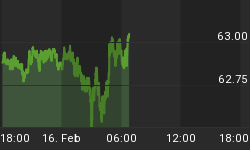Milton Friedman, may he rest in peace, used to talk about the "tyranny of the status quo." By that, he meant that it is difficult to change public policy because of entrenched interest groups allied with policies that have been in effect for decades. I would argue that opposition to changes in our current Social Security and Medicare programs is an example of tyranny of the status quo. The original intent of both programs was to provide an income support floor for our retired senior citizens. So, why do these programs supplement the income directly through Social Security and indirectly through Medicare to wealthy seniors? We do not have similar income support programs for wealthy juniors. If we care about poor people, regardless of whether they are 75 or 25, why don't we means test Social Security and Medicare? Higher income retirees would get smaller Social Security benefits and pay even higher Part B Medicare premiums than they already do.
One common objection to this is that seniors paid into these programs when they were working and are, thus, owed the benefits. Yes, when you work you pay Social Security and Medicare taxes. But, because these programs are largely, in effect, Ponzi schemes, your Social Security and Medicare taxes are being used to cover the benefits being paid out to your parents and grandparents. When you are eligible for these benefits, it will be your children and grandchildren making payments to fund your benefits if the basic structure of these programs is not changed. And, until recently, Social Security tax receipts exceeded benefit payments. This current surplus was folded into the Treasury's general fund, which was used to pay for everything from military activities to national parks. Social Security taxes are just another revenue source for the Treasury - an income-capped flat tax. The Social Security Trust Fund is just a bookkeeping gimmick. When the time comes to tap it, the Treasury will have to raise taxes, issue bonds and/or cut other spending to honor it. So, let's talk straight about this issue.
Now, means testing Social Security and Medicare benefits obviously will be unpopular with those higher income seniors who have "earned" the full benefits promised them. So, in order to mollify this group, let's flatten the federal income tax structure. But, so as not to lose too much in revenue, as the marginal rate structure is flattened, let's cap some popular deductions such as mortgage interest. The basis of supply-side economics is that economic decisions of work vs. play and saving/investment vs. pure consumption are made at the margin - the margin of the tax rate. So, by flattening the marginal income tax structure, the economy's potential growth rate would be enhanced.
I wish that this idea of means testing senior benefits and flattening marginal federal income tax rates were originally thought of by me. But, this is not the case. I got the idea from reading a commentary about a year ago written by Josh Barro, the Walter B. Wriston Fellow at the Manhattan Institute. The Manhattan Institute is a think tank devoted to arriving at market-oriented solutions to public policy challenges. Any errors in representing this view are, of course, mine and not those of Mr. Barro.
















